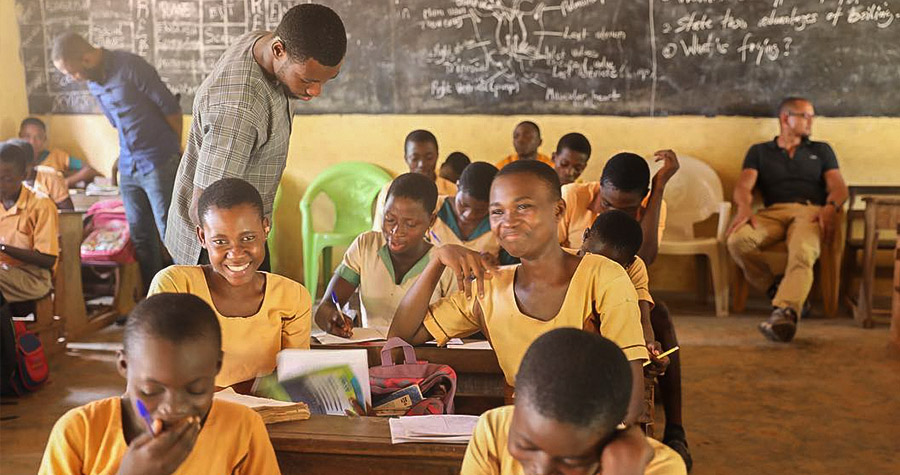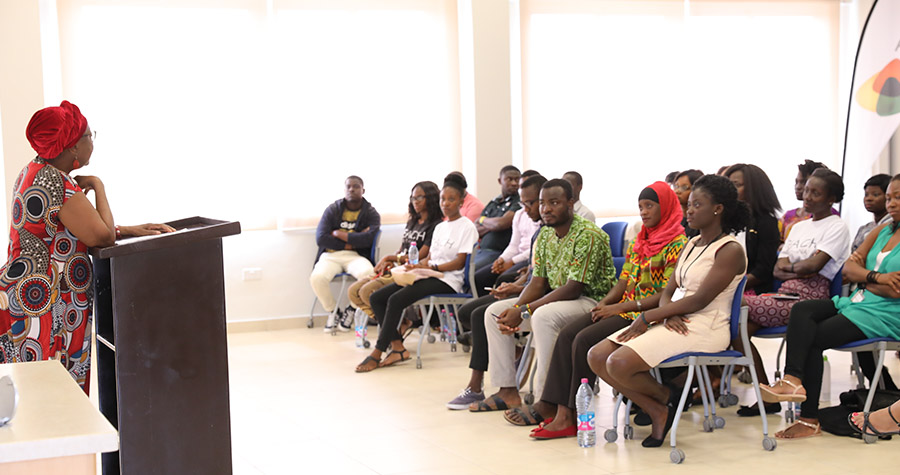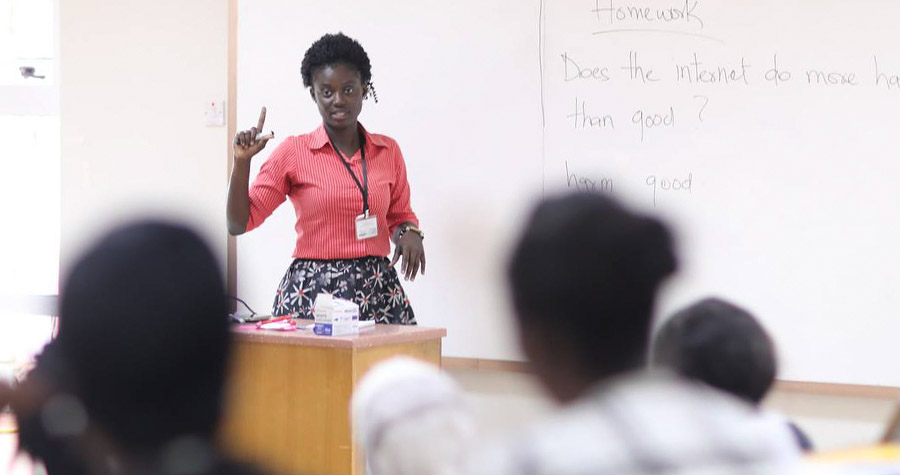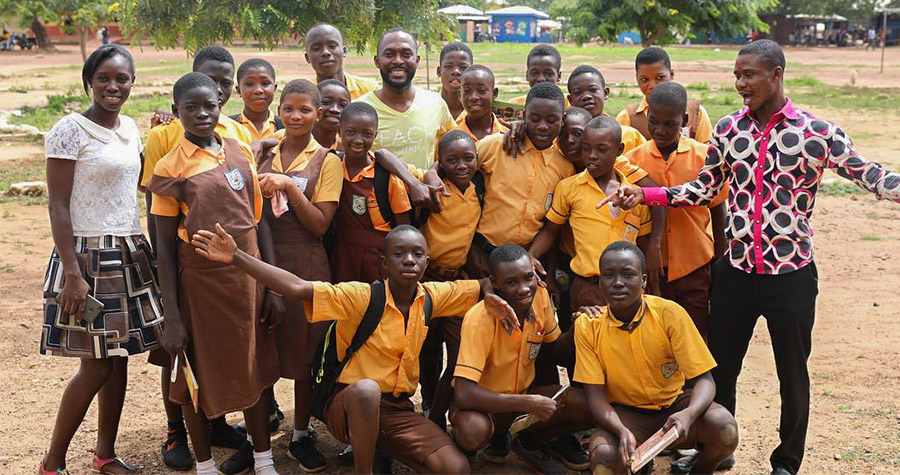 August 31, 2018
August 31, 2018
Over the 2018 long break, some 40 recent college graduates from across Ghana participated in Teach for Ghana’s (TFG) training workshop at Ashesi. Founded in 2013 as part of the Teach for All initiative launched in 21 countries worldwide, TFG embarked on a mission to achieve more equitable outcomes in Ghana’s educational system.
Every year, TFG recruits top graduates from various universities in Ghana and enrolls them in an intensive 5-week training program held at Ashesi. The fast-paced and stimulating training serves as a starter course in pedagogy, leadership, and ethics, that preps fellows for their 2-year teaching fellowships in Ghanaian localities where educational outcomes are the poorest.

TGF’s goal is to give training in education to as many university graduates as possible, who then go on to teach in disadvantaged locations in Ghana. In the highly selective program, 31 fellows were accepted this year from a pool of over 700 applicants received from Ashesi University, University of Ghana, Kwame Nkrumah University of Science and Technology, University of Development Studies, and the University of Cape Coast.
“As an organization, we believe more children should have access to higher educational opportunities,” said Carolina Ramirez, Chief Program Officer at Teach for Ghana.“And when recruiting the next generation of leaders, we look for resilient individuals who demonstrate key competencies and can think critically and collaboratively about the root causes of inequity. One of our major milestones was to matriculate more students into senior secondary school, and we’re extremely happy that after TFG entered schools in rural areas in the Volta Region, the average pass rate for all our schools increased from 55% to 72%, with 4 of our 12 schools scoring a 100% pass rate for the first time on the Basic Education Certificate Examination (BECE). We expect similar impact in our 13 schools in the Northern Region as well.”

The theme for this year’s training was to engage, realize, and inspire. Participating students had an opportunity to hear from different speakers and organizations, including Ashesi’s President, Patrick Awuah, Kofi Tawiah, Credit Suisse, and Ecobank Ghana; who led energizing workshops on developing values, mindsets, and resolve to transform leadership across Ghana.
As part of the program, fellows also participated in a Teaching Practicum where they were given the opportunity to put theory into practice. Teaching for two weeks in disadvantaged schools located near Ashesi’s campus, the practicum enabled fellows to reflect on best teaching practices and expectations for the impending two-year period.
“An integral part of the practicum are the home visits, an eye-opening chance for Fellows to visit their students’ families,” Carolina shared. “During the visits fellows to get to know their students’ home lives, interact with their families and communities, and witness first-hand the unique factors that affect the children they come face to face within their classrooms.”

Current TGF fellow and recent Ashesi Alum, Teni Agana’ 18, who plans to teach students in the Berekuso township over the next year, found the training extremely useful.
“The program encouraged fellows to create a positive classroom culture,” said Teni. “As fellows, we were to try and understand the root cause of a student’s behavior and be mindful of how we treat and address them. By putting ourselves in their shoes, we were able to better understand how daily experiences affect students in the classroom. For example, we walked long distances to school and completed typical punishments like fetching water, weeding and cleaning school bathrooms. It helped us appreciate how difficult it would be for a child under this circumstance to pay attention or absorb any material in the classroom, and why we needed to avoid certain punishment practices with our students.”

Over the next 5 years, TFG plans to recruit more graduates and expand their outreach to all 10 regions of Ghana, especially considering the imminent introduction of the shift system in Senior High Schools. By 2021, they hope to have collated a critical mass of alumni and fellows who will be addressing educational challenges simultaneously.
Share this story
